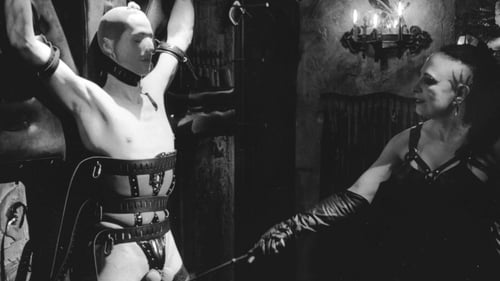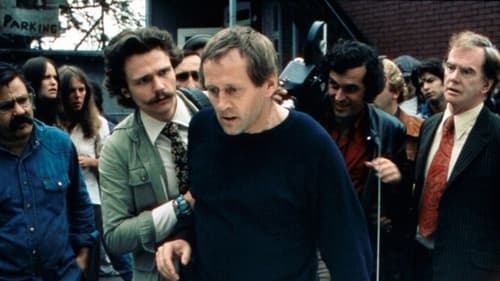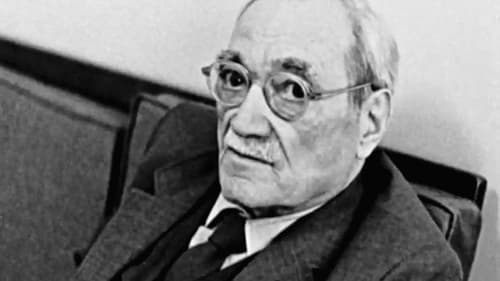
Writer
Analysis of sadomasochism and our obsession with power through the centuries.

Editor
This feature film is a documentary portrait of Joseph Idlout, a man who was once the world's most famous Inuit. Unknown to most Canadians today, Idlout was the subject of many films and books, and one of the Inuit hunters pictured for many years on the back of Canada's $2 bill. In this film Idlout's son, Peter Paniloo, takes us on a journey through his father's life - that of a man caught "between two worlds."

Editor
Although his influence on the history of photography has been nothing short of profound, Paul Strand (1890-1976) remains a curiously shrouded and paradoxical figure. While passionately devoted to humanity, he was happiest in the isolation of the dark room. A pioneer filmmaker (Manhatta, Native Land, Heart of Spain, The Wave), he found the process of collaboration painful. Strand established himself in New York in the 1920's as a master of light and structure, with his now famous photo of Wall Street inspired by the forms and movement of European modernist painters such as Matisse and Picasso. His closeup portraits and landscapes were equally profound. John Walker's Strand.

Editor
Peep the chicken ventures out on an adventure into the Big Wide World and makes some friends along the way. Narrated by Peter Ustinov, this 1988 short film commissioned by the National Film Board of Canada comprises three short stories starring Peep the chicken, Quack the duck, and Chirp the Robin, and eventually served as the inspiration for an ongoing 2004 animated series.

Director
Through rare film footage and interviews with some of the pioneers who made film history, this documentary traces the history of filmmaking in Canada from 1939-1953. It covers the establishment of the National Film Board in 1939; the war years; Canada's first Oscar; and John Grierson's sudden demise as Canada's driving force in the industry. We witness the struggles of the private film producers, the development of the film industry in Québec, and the emergence of the documentary. Above all, the film asks whether the alternating fortunes of the Canadian film industry, in the face of an overwhelming American presence, reflect the attitudes of the Canadian people towards themselves and their culture.

Editor
In this socially conscious drama, a TV journalist begins investigating a large factory that has been threatening the health of the children who live in the town's poorest, most polluted section. Because of his investigation, he and his family are threatened by company thugs. He gets no help from his TV station as they are loathe to tangle with big business.

Director
This feature-length Oscar®-nominated documentary focuses on Malcolm Lowry, author of one of the major novels of the 20th century, Under the Volcano. But while Lowry fought a winning battle with words, he lost his battle with alcohol. Shot on location in four countries, the film combines photographs, readings by Richard Burton from the novel and interviews with the people who loved and hated Lowry, to create a vivid portrait of the man.

Editor
From a quiet, neglected corner of Nova Scotia, a meeting with the Black community that shows both the traditional attitudes of the older generation and the more alert, resolved stance of the young. The old still pin their hopes on the church and the preacher, while the young look more towards the Black United Front and its roving director. For both generations change is a challenge. The common hope is for a fuller life.

Editor
This feature film is a portrait of John Grierson, the first Canadian Government Film Commissioner and founder of the National Film Board in 1939. Interweaving archival footage, interviews with people who knew him and footage of Grierson himself, this film is a sensitive and informative portrait of a dynamic man of vision. Grierson believed that the filmmaker had a social responsibility, and that film could help a society realize democratic ideals. His absolute faith in the value of capturing the drama of everyday life was to influence generations of filmmakers all over the world. In fact, he coined the term "documentary film."

Editor
An incident from the early days of Québec's quiet revolution, tailor-made for the cartoonist. It is the story of a Montréal commuter train, a unilingual ticket collector and a bilingual passenger. The passenger appears on screen himself to describe his bid to have tickets requested in French as well as in English. What ensued, and how even the railway president became involved, is illustrated with wit and humor.








